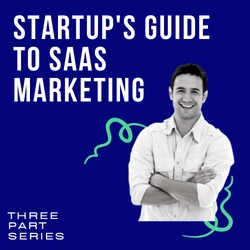Avoid These 5 Major Mistakes When Search Algorithms Change To Prevent Crushing Your Rankings
Google and Bing change their search algorithms periodically, and most businesses race to adapt, hurriedly making changes to their site to hold onto their coveted search engine page rank. Often times, without a full understanding of these changes in detail these rapid adaptations lead to the horrifying, the abhorrent, the terrible…a drop in page rank leading to a decrease in site visitors, and consequently, revenue.
Attn: ServerWise Clients
This article does not apply to you as our search engine experts have your SEO best interests well in hand. Please contact your Sites Manager or one of our SEO Specialists if you have any questions.
1. Impulsive Decisions
Sometimes it’s too easy to quickly make changes on your top ranked pages, removing valuable links or adding new ones. Fight the urge to stay ahead of your competitors by making quick changes that will, inevitably, damage your rankings long-term.
Wait until the search algorithm changes by Google and Bing are live and monitor your pages for a drop in rankings and site visitors. Remember, page rank and strong search engine placement is a marathon and not a sprint.
Oftentimes, a small drop in site traffic is normal. Give it a few days and check to see if your traffic has bounced back – it often does. Now you have your basis, and now you can start making those required changes one piece at a time and monitor the results.
Most of all, make sure you put your user’s experience on your site first and foremost.
Google is always watching for that!
2. Forgetting Your Content Is For People, Not Google
Don’t fall into the SEO content creation trap. Yes, content is very important, but you can have 200 keyword-laden articles on your blog and if those articles aren’t written for human beings to read and enjoy and learn from, you will be penalized by Google.
See, the search engine giant has gotten wise to the former common tag and keyword laden fake articles that were put together by software to increase page rankings. Now Google will punish you for those styles of pages and posts.
It’s all about user experience.
Was each piece of content written by and for human beings? Can a person read and take something away from each piece of your content, whether it’s knowledge or entertainment or a quick tip or two? If the answer to both of those questions is not an automatic YES – you have a problem.
Make sure your content is genuine and enjoyable and informative. No plagiarism. No borrowed headlines or imagery from your higher ranked competitors because I assure you, Google will know, and your page rankings will pay a hefty price.
3. Using SEO Hacks
First off, let me say that SEO hacks are worthless, useless and downright foolish. You may see short-term results, but they won’t last, and you’ll end up watching your page rankings take a tumble.
It’s normal to rush to overcorrect by chasing one search engine “hack” after another. In the end, you absolutely must stick with the tried and true (regardless of what those hacks selling PDFs on “hacks” tell you) method of continually and consistently creating new and original content that your site visitors will enjoy.
You may experience a small decline in page rank briefly, but if you stick to the strategy of proper people-friendly content you’ll experience a nice bounce back in no time as the algorithm learns and autocorrects.
Remember, the search algorithms are always evolving. Google and Bing only announce major changes periodically BUT each day feeds more data into their valuable search algorithms and more data means more opportunities for small, almost unnoticeable, changes. These changes – corrections if you will – ensure that original content creators never lose their hard-earned place for more than a week.
4. Not Bothering To Learn The Why
Google has changed its algorithm, and you read over the short bulleted list of what each change involves on the Google developers blog. You have a firm understanding of the changes and what you can do to take advantage of them. But much like in journalism, one must know the why behind each change.
After all, it’s not the change itself that you must focus on – that change is a small piece of code that Google can alter again a month later. You must identify the reason behind the changes. Understanding the purposes – what Google is trying to accomplish – will allow you to develop a long-term strategy to provide exactly what the search engine wants.
5. Getting Backlinks Fever
It’s a story as old as Google itself – panic buying backlinks to catapult your site into the stratosphere of results almost overnight. And for many years that strategy worked brilliantly. For many years one could buy 500 backlinks and within a week go from page 3 to page 1 of search results.
Those days are gone!
Backlinks are now more valuable than ever, but there is a rather important caveat you must know – backlinks must be relational and authoritative.
Buying a bunch of backlinks on an unknown blog or website that is in truth nothing but a collection of backlinks will see your page rank take quite a tumble on Google.
The search giant is wise to this and doesn’t tolerate such obvious attempts at manipulation.
One easy to read, understandable and highly related backlink on a site with a strong reputation is far more valuable than 5,000 backlinks on disreputable sites that most search bots and crawlers have long blocked.



Building backlinks is often seen as a job to itself and in some ways it can be. But I’m going to walk you through a few actionable steps you can take starting right now to begin your backlinks building campaign and increase your site rankings. Keep Learning >

To dominate locally your business does not need to depend on or even create content. There are other ways to succeed in local SEO. Here are nine you can start using today. Keep Learning >



